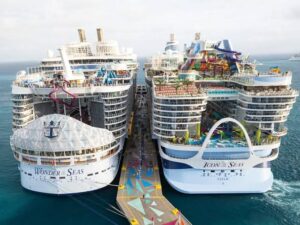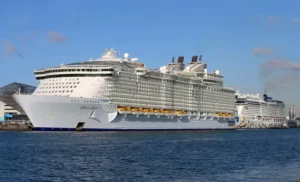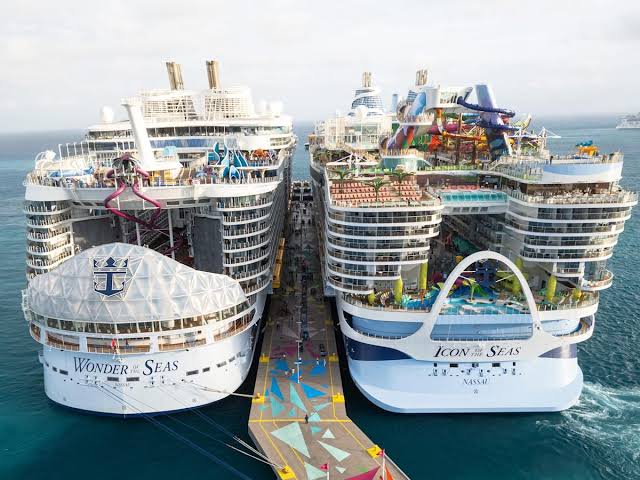Carnival Cruise and Royal Caribbean Quietly End Beloved Cruise Traditions Amid Changing Times
Cruise vacations have long been defined not just by tropical destinations and endless buffets, but by cherished onboard traditions that created a sense of community and escapism. However, recent developments suggest that major cruise lines like Carnival Cruise Line and Royal Caribbean are phasing out some of these hallmark experiences—quietly and without much fanfare.
Guests returning from recent voyages report noticing the absence of long-standing activities such as the Captain’s Gala, formal dress nights, and elaborate midnight buffets. While cruise lines haven’t made official announcements confirming the permanent end of these traditions, the gradual disappearance points to a deliberate shift in onboard culture. For loyal cruisers, especially those who have sailed for decades, the loss is both sentimental and symbolic.

A Shift Driven by Modern Traveler Preferences
One key factor appears to be evolving guest expectations. Today’s cruise passengers increasingly value flexibility and informality over the pomp and ceremony of old. Millennials and Gen Z travelers—the fastest-growing demographic among cruise passengers—tend to prioritize experiences that are casual, customizable, and Instagrammable. In turn, cruise lines are adapting their offerings to meet these tastes.
“Not everyone wants to pack a tuxedo or an evening gown for vacation anymore,” said travel analyst Maya Hartwell. “The emphasis now is on comfort, freedom of choice, and unique experiences, rather than strictly adhering to tradition.”

Carnival, which has long been known for its laid-back and family-friendly vibe, has gradually downplayed formal dining nights in favor of flexible dress codes and more casual dining experiences. Royal Caribbean, too, has been pivoting toward themed dining venues and immersive shows that cater to modern sensibilities.
Cost-Cutting in a Post-Pandemic Industry
Another driving force behind the shift is financial. The cruise industry was hit hard by the COVID-19 pandemic, with months-long shutdowns, refund backlogs, and increased costs associated with enhanced sanitation and safety protocols. In the wake of this disruption, cruise lines have had to find ways to streamline operations and cut costs—often in ways that aren’t immediately obvious to passengers.
Traditions like midnight buffets and gala dinners are labor- and resource-intensive. These events require extra staffing, higher food waste, and more logistical coordination. By scaling them back or eliminating them, cruise lines can reduce operational expenses without raising prices.

In place of large-scale events, cruise lines are offering smaller, more targeted experiences that can be monetized or managed more efficiently—like specialty dining packages, chef’s table events, and exclusive tastings. These changes also allow cruise lines to better control crowding and improve guest flow, important considerations in a post-pandemic environment.
A Quiet Farewell
Interestingly, these changes are happening subtly. Cruise lines have not formally announced the elimination of specific traditions. Instead, they’re simply omitting them from new cruise itineraries and marketing materials. The shift has been so gradual that many guests only realize the changes once they’re already onboard.
“This was my tenth cruise with Royal Caribbean,” said frequent cruiser Daniel Lopez. “I was surprised that there was no Captain’s Gala and no formal night. No one explained why—it just wasn’t there anymore.”
The quiet nature of the transition may be strategic. By avoiding public declarations, cruise lines reduce the risk of backlash from long-time guests while still moving forward with updates that reflect current consumer trends and business realities.
What Comes Next?
As the cruise industry continues to evolve, traditions may take new forms rather than disappear entirely. For example, instead of traditional formal nights, some ships are hosting “Evening Chic” or “White Night” events that encourage stylish attire without rigid dress codes. Similarly, rather than massive buffets at midnight, late-night snacks might be offered in more curated and controlled settings.

Whether these changes signal the end of the golden age of cruising or a smart evolution for a new generation remains to be seen. What is clear, however, is that the cruising experience is undergoing a cultural shift. Cruise lines are working to strike a balance between honoring their heritage and staying relevant in a competitive and fast-changing travel market.
For seasoned cruisers, the quiet fading of beloved traditions may come as a disappointment. For newcomers, it may just be part of the modern cruise experience. Either way, the tides of change are unmistakably underway.













